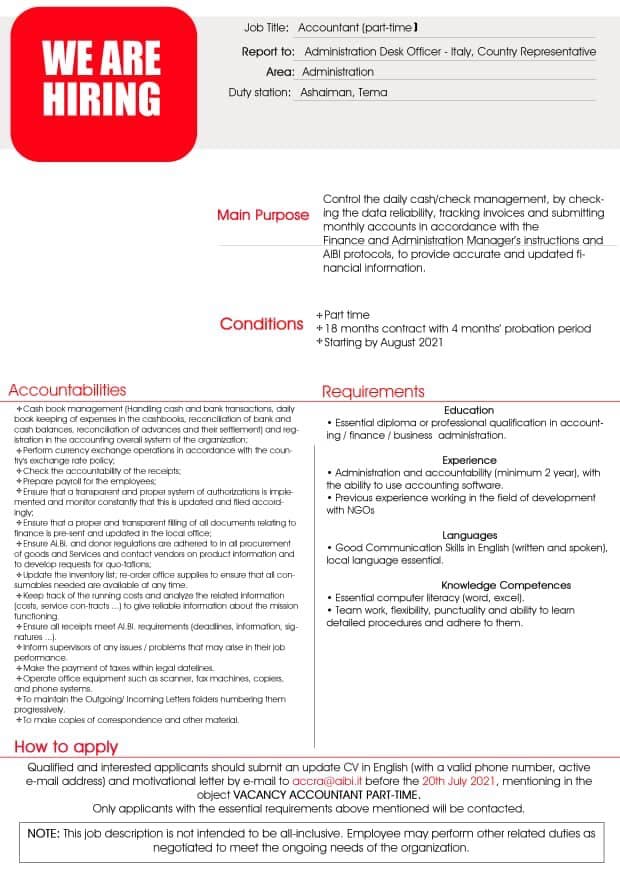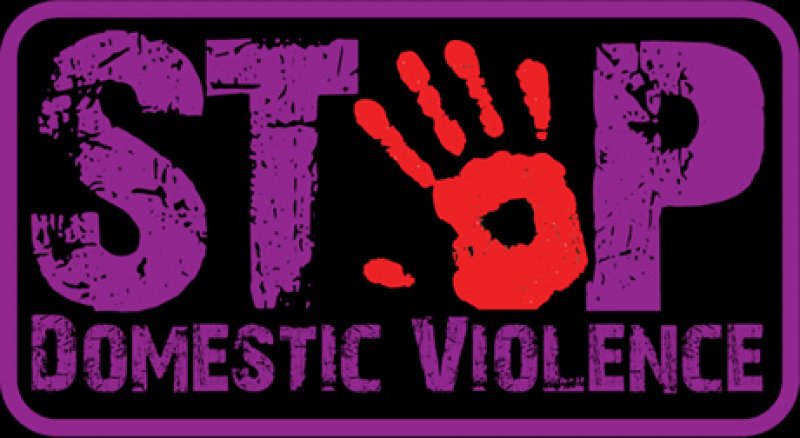Even though domestic violence is a crime under the Domestic Violence Act, 2007 (Act 732), the bigger challenge, however, is that many people especially rural folks, are still oblivious of the law.
As a result, they do not report cases to the police and other appropriate agencies when they occur for investigation and possible punishment of perpetrators.
The Act addresses domestic, physical, sexual, emotional, psychological and economic forms of violence but many rural folks remained unaware that many of these forms of violence constitute a crime even though they suffer them in their homes.
Worried DOVVSU
This, according to Assistant Superintendent of Police (ASP) Mr Adongo Apiiya, the Upper West Regional Commander of the Domestic Violence and Victim Support Unit (DOVVSU) is worrying.
“Domestic violence is a crime affecting society, but the cases are not being reported due to the low level of awareness among the public coupled with the role of customs and traditions and the unwillingness of some victims to report.
“It is only when the cases are reported that we can investigate and prosecute offenders to serve as deterrent to others”, ASP Apiiya said.
The Cases
Meanwhile, in the Upper West Region, a total of 463 cases of domestic violence were reported in 2019, 384 cases in 2020 and 73 cases in the first quarter of 2021 according to DOVVSU.
Despite the decrease in the number of cases from 463 in 2019 to 384 in 2020, statistics on causing harm, physical/emotional abuse, threat of death, and threat of harm categories have all increased.
The EROP Project
In that regard, Madam Bernice Naah, the Executive Director of the African Centre for Human Rights and Sustainable Development (AfCHuRSD), launched a project dubbed: “Equal Rights and Opportunities for Women and Girls Project (EROP).
She said the project is being funded by the Dutch Embassy in Ghana with implementation partnership by GH Alliance, AfCHuRSD and WOMEN IN NEED (WIN).
According to her, the project, which was being implemented across 10 communities in the Nadowli-Kaleo District and Jirapa Municipality, was proposed as a result of the numerous human rights challenges women and girls in particular continue to face.
These challenges, Madam Naah hinted, prohibited women and girls from realising their rights and also taking opportunities for the advancement of their ambitions in order for them to live fulfilled lives.

The Goal
The Executive Director of AfCHuRSD said the project goal was to ensure that women and girls in Ghana realised their human rights and utilized opportunities to better their lot.
To achieve this goal, she noted, it was necessary to educate women and girls on their human rights and opportunities available to them as means of empowering them to hold duty bearers accountable.
Again, it is necessary to train women and girls on entrepreneurial skills and opportunities for economic empowerment.
Social Justice Institutions
Since the launch of the project, capacities of social justice institutions had been strengthened and community support teams trained and working closely for the prevention of violence and intervention when violence is perpetrated.
Affirmative Action Bill
It has also been advocating the passage of the Affirmative Action Bill, which had been pending in Parliament for more than two decades.
Again, it is equally seeing to an increased support for women and girls in communities and in schools on their human rights so that issues of violations are addressed and respect for everyone’s rights sustained.
Community fora
Following the capacity building for the social justice institutions and the community support teams, action to enlighten the selected beneficiary communities began immediately.
The community support teams particularly were motivated and demonstrated by initiating the community sensitization programmes with the support of AfCHuRSD.
They organize community fora inviting resource persons from the social justice institutions including; the Domestic Violence and Victim Support Unit (DOVVSU) of the Ghana Police Service, the Commission on Human Rights and Administrative Justice (CHRAJ) and the Department of Social Welfare to do the sensitization.
Impact so far
Mr Abdul-Rauf Alhassan, the Jirapa Municipal Director of CHRAJ, said from the sensitization, it was clear the community people did not know that domestic violence whether physical, psychological or emotional abuse constituted an offense and a violation of the rights of the abused person.
He said as a result they, especially women, endured a lot in their marital homes and suffering the consequences in ignorance.
“Through the sensitization, many things including; freedom of expression, freedom from domestic violence, torture, outmoded cultural practices that the people were not aware of have become known to them”, the CHRAJ Director said.
Mr Alhassan said after the sensitization, the people were now open and willing to collaborate with justice and social protection institutions to address the canker.
For the people to be willing to take their own actions at the community level and collaborate with the social and justice institutions is a plus for AfCHuRSD and its partners on the EROP project.
Mr Umar Yakubu Yaarun, the Nadowli-Kaleo District Director of CHRAJ, noted that domestic violence was real and the programme had helped them to unravel some of the issues including human rights abuse that the people hitherto see to be customary issues.
“We have increased the people’s capacity to know that domestic violence is against the law and that when it happens they should report to the police, CHRAJ or social welfare for assistance in addressing the issue”, he said.
Inspector Francis Forson Ackon, the Criminal Investigative Department (CID) Officer in charge of the Jirapa Municipality, noted that issues of rights abuse were not so familiar with rural women and that resulted in them remaining silent and enduring a lot of pain and torture from their spouses.
According to him, their ignorance was as a result of their inability to report to appropriate bodies, pointing out that now with the sensitization, the women now understand their rights and were fully willing to report any of such abuses.
The good thing is that the men were also present and they now know that if they abuse their wives, they are going to be reported – “The project has been a success and I think it should be scaled up to cover more communities”.
“I think there will be a decrease in the frequency of domestic violence, which will lead to a further decrease in number of cases reported because in the past, most men think that what they were doing to their women were right, but now that they know it is wrong and can land them in trouble, they will not engage in any of such again”, he said.
The Jirapa CID Officer reminded men that this time there was equality among both men and women and they should not maltreat the women.
Mr Prosper Kpankyaano, the Nadowli-Kaleo District Social Welfare Officer, noted that the contributions from community members after each sensitization session indicated that men were taking interest in promoting the removal of cultural practices affecting women and children in their communities.
Collaboration with CHRAJ, DOVVSU and Social Welfare
Mr Alhassan lauded the collaboration with AfCHuRSD and noted that it boosted the public education drive of the CHRAJ in the two beneficiary districts as resources needed to reach out to these communities were provided.
He said it also strengthened the relations between the office and the community people, thereby making the office friendlier for community people to visit at anytime to report a case or to seek their services.
Mr Yaarun said through the sensitization, they discovered certain things that hitherto were not available, which helped them to adjust their public education campaign messages.
“Indeed, it helped us in our public education drive because those five communities that we went to, I don’t see how we could have done that within a quarter, it was not going to be possible due to lack of resources.
“As the offenses reduce through the sensitization, then the work of DOVVSU would have been achieved”.
Mr Kpankyaano noted that with the support of AfCHuRSD, the Nadowli-Kaleo Social Welfare Department was able to implement some of its planned activities at the community level.
“Sometimes, you have nice plans to move to the communities and engage people but if funds are not there, the plans remain in the office”, he said.
Mr Kpankyaano noted that such collaborations often yielded positive results and guaranteed sustainability and therefore, AfCHuRSD should be encouraged to source more funding to enable it scale up to cover all communities in the two beneficiary districts and beyond.
Conclusion
Domestic violence is real and its consequences are daunting on victims, therefore, the need for continued sensitization and awareness creation at the local communities cannot be overemphasized.
In this vein, the introduction of the EROP project and the impact it has so far made it can be appropriately described as the ‘game changer’ in the fight to end human rights abuse and promote women and girls economic empowerment and the initiators, funders, implementers and all other stakeholders deserved a pat in the back.




